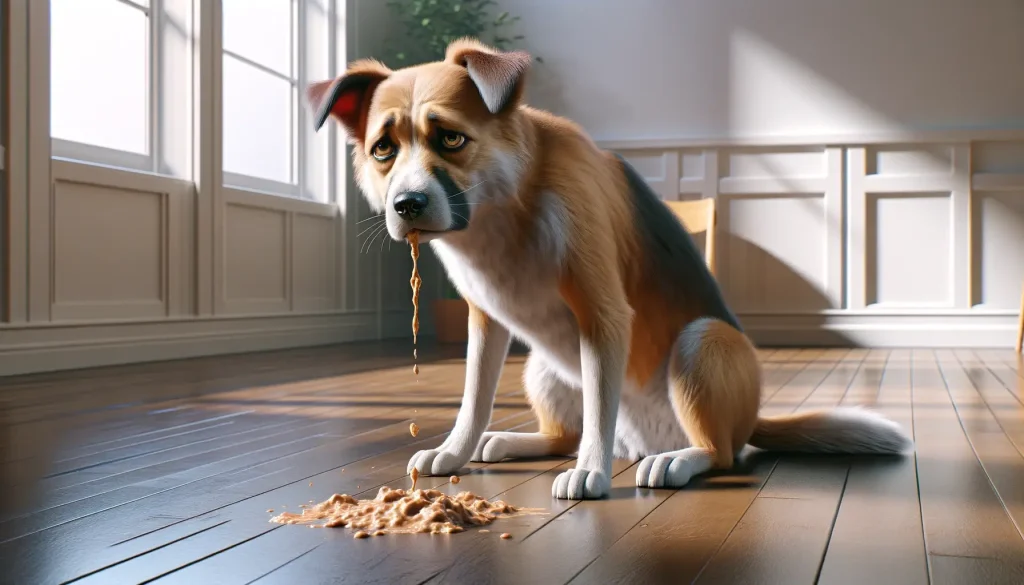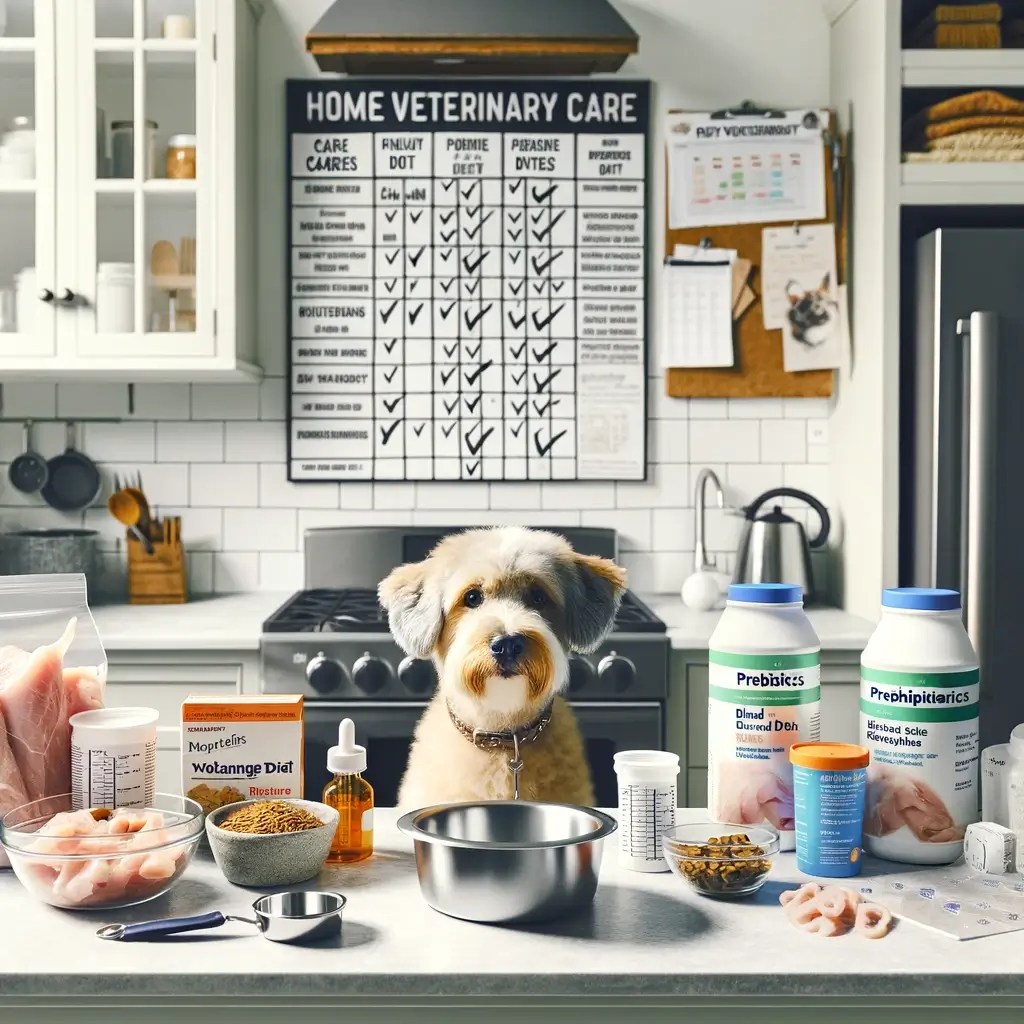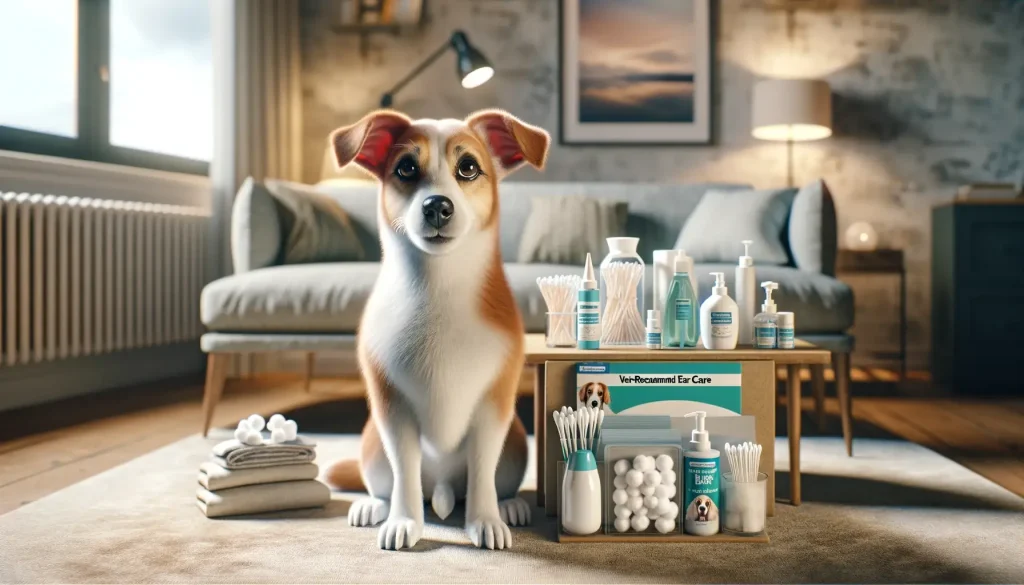
When to Worry About Your Dog Diarrhea & Vomiting
Witnessing your dog suffering from diarrhea and vomiting is unsettling. It’s easy to panic, but essential to stay calm and observant. These symptoms are common indicators of distress within your furry friend’s system, often signaling they’ve ingested something unsavory or are battling an illness. Keeping them hydrated is key during this time.
The question of when to call the vet is paramount. If your dog’s vomiting and diarrhea last beyond 24 hours, or if they start showing signs of loss of appetite, lethargy, weakness, or unusual nasal discharge, it’s time to get professional help. Veterinarians can get to the root of the problem and initiate the right treatment to get your pet back on their paws.
While it’s normal for pets to occasionally have off days, recognizing when a situation escalates to an urgent care need is crucial. What signs should prompt you to take immediate action for your dog’s health and comfort?
Signs Your Dog Needs Urgent Vet Care
Knowing when to seek urgent vet care for your dog is essential in being a responsible pet owner. Symptoms like diarrhea and vomiting should never be ignored. They often signal more severe issues that require prompt attention.
Immediate veterinary consultation is critical if these symptoms persist for over 24 hours. Dogs showing loss of appetite, lethargy, weakness, or nasal discharge alongside these symptoms could be experiencing something more serious than a simple stomach upset.
- Diarrhea lasting more than a day can lead to dehydration and further complications.
- Vomiting repeatedly could indicate poisoning, blockage, or severe gastrointestinal issues.
- Loss of appetite might suggest your dog is in pain or experiencing other illnesses.
- Signs of lethargy or weakness are often overlooked but could be harbingers of critical conditions requiring immediate care.
Ensuring your dog stays hydrated is paramount, but do not delay veterinary consultation if you observe these worrying signs. Veterinarians are equipped to diagnose the cause and start the necessary treatment, supporting your dog’s health and well-being effectively.

Dehydration in Dogs
Dehydration is a serious risk when your dog has diarrhea and vomiting. It occurs when the body loses more fluids and electrolytes than it takes in. This can happen rapidly in dogs due to their smaller body size compared to humans.
Signs of dehydration include dry gums, lethargy, and loss of skin elasticity. You can check for dehydration at home by gently lifting the skin on the back of your dog’s neck. If it doesn’t snap back quickly, your dog could be dehydrated. Immediate steps should be taken to rehydrate your pet and seek veterinary care if symptoms persist.
Preventing dehydration is key. Always provide unlimited access to fresh water. Encouraging your dog to drink little and often can help maintain fluid levels. Offer ice cubes if your dog resists drinking water; many dogs find them more appealing.
Severe dehydration can lead to more serious health issues such as kidney failure or shock. If you suspect your dog is severely dehydrated, visit a vet immediately. IV fluids may be necessary to quickly rehydrate your pet.
Home Care for Dogs with Diarrhea and Vomiting
When your dog has diarrhea and vomiting, there are simple yet effective measures you can take at home. These steps help manage symptoms and can make your pet more comfortable.
Hydration is crucial. Ensuring your dog has constant access to clean water is the first step in home care. Dogs can become dehydrated quickly when they are vomiting or have diarrhea. If they’re not interested in drinking, try offering small amounts of water frequently or using a syringe to gently squirt water into the side of their mouth.
Next, consider dietary adjustments. After a 12-24 hour fasting period to rest their stomach, introduce a bland diet. Foods like boiled chicken, rice, or pumpkin can be soothing for their digestive system. Serve these in small, frequent meals to ease your dog’s stomach back into normal function.
Observe your dog closely for changes in symptoms. Keep a watchful eye on how much they eat, drink, and their bathroom habits. Note changes in their stool and the frequency of vomiting. This information is valuable if a vet visit becomes necessary.


Avoid giving your dog over-the-counter medications without consulting a vet. Many human medications can be harmful to dogs. When in doubt, professional advice is always your best bet.
Comfort is also key. A quiet, cozy space helps your dog rest and recover. Stress can exacerbate symptoms, so keeping things calm is important.
Remember, these steps are for mild cases that don’t persist beyond 24 hours. If symptoms continue or worsen, involving loss of appetite, lethargy, or any other unusual signs, seeking veterinary care is essential. Prompt action can prevent complications and help your furry friend heal faster.
Dietary Solutions for Diarrhea and Vomiting
Dietary management plays a pivotal role in helping dogs recover from diarrhea and vomiting. When your dog is facing these uncomfortable symptoms, the right food choices can significantly ease their discomfort and speed up their recovery. Understanding what to feed your dog during this time is as crucial as knowing when to seek veterinary care.
The first step in dietary management is often to implement a brief fasting period. This allows your dog’s digestive system to rest and recover. However, fasting should only last about 12-24 hours and should be skipped for puppies and dogs with health conditions, as they need continuous nutrition.
Following the fasting period, introducing a bland diet can be highly beneficial. Foods that are easy to digest, such as boiled chicken (without skin or bones), plain boiled white rice, and pumpkin, are ideal. These foods should be offered in small, frequent meals rather than two or three large ones. This approach helps prevent overwhelming your dog’s digestive system, allowing for a smoother recovery.
Probiotics and prebiotics can also support your dog’s gut health. These supplements help restore the balance of good bacteria in the digestive tract, which can be upset during episodes of diarrhea and vomiting. Consult with your vet for recommendations on probiotic supplements suitable for your dog.
It’s important to transition back to your dog’s regular diet gradually once they show signs of improvement. Start by mixing their regular food with the bland diet in increasing amounts over several days. This gradual transition helps avoid upsetting the digestive system again.
Throughout this process, continue to monitor your dog’s hydration levels and overall condition. Any persistent symptoms or signs of dehydration should prompt a visit to the vet.

Food Allergies and Sensitivities in Dogs
Food allergies and sensitivities can often manifest as diarrhea and vomiting in dogs, alongside other symptoms such as itchy skin, ear infections, and paw licking. Recognizing and addressing food allergies or sensitivities is essential for your dog’s comfort and health. This involves understanding the signs of food allergies, identifying the offending ingredients, and adjusting your dog’s diet accordingly.
Food allergies in dogs are immune system responses to certain proteins found in food, while sensitivities, also known as food intolerances, are more about the digestive system’s inability to process certain ingredients properly. Common allergens include beef, dairy, wheat, egg, chicken, lamb, soy, pork, rabbit, and fish.
If you suspect your dog has a food allergy or sensitivity, the first step is to consult with your veterinarian. They may recommend an elimination diet, where you feed your dog a diet free from common allergens for a period of time and then gradually reintroduce ingredients to pinpoint the cause of the reaction.
During this period, it’s crucial to feed your dog a limited ingredient diet or a hypoallergenic diet as directed by your vet. These diets help isolate the allergen by minimizing the number of food sources your dog is exposed to.
Keep a detailed food diary during the elimination process, noting what your dog eats and any symptoms they exhibit. This can help identify patterns and specific triggers for their allergies or sensitivities.
Once the allergen is identified, avoiding it is key. Many commercial dog foods are formulated to be hypoallergenic or limited in ingredients, which can help manage your dog’s condition. Additionally, consider natural, whole food options that are less likely to contain additives and fillers that can exacerbate allergies.
Remember, managing food allergies and sensitivities is a process. With patience, careful observation, and guidance from your veterinarian, you can help your dog lead a happy, healthy life free from the discomfort of allergic reactions and sensitivities.
Beginner Guide to Raising Quail at Home
What are the Signs of a Dog Concussion?
What Causes Your Dog’s Ears to Smell Bad?
When your dog’s ears start to emit an unpleasant odor, it might leave you puzzled…
Methimazole Treatment for Cat Hyperthyroidism
Methimazole plays a crucial role in managing feline hyperthyroidism, a condition marked by an overactive…
Got Hummingbirds in your Backyard? Here’s How to Care for Them.
Why Does Your Cat Pee Outside the Litter Box?
Cat’s Litter Box Issues It’s not uncommon for cat owners to face the frustrating dilemma…




